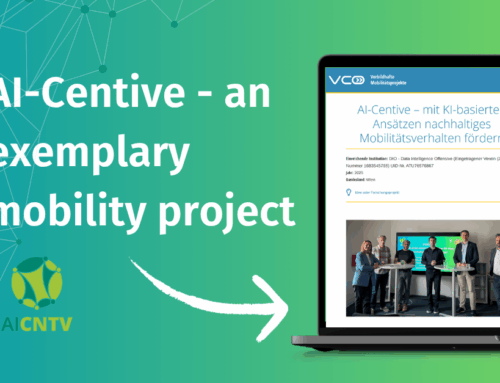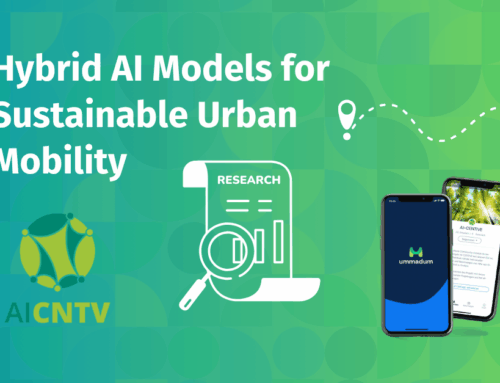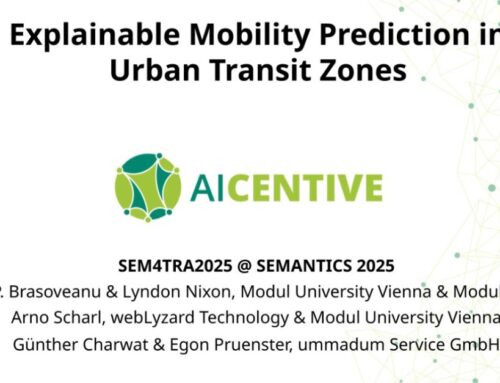Insights and reflections
The first mobility conference, organized by the Federal Ministry for Climate Action, Environment, Energy, Mobility, Innovation and Technology under the motto “Together stronger for change”, brought together experts and stakeholders to explore ways to achieve sustainable mobility. A remarkable session, “Artificial intelligence: turbo for the mobility transition?”, was attended by Prof. Scharl, Managing Director of webLyzard technology, an AI-CENTIVE project partner, among others.
Facilitated by Magdalena Weichselbraun and Lena Reiser, the discussion was initiated with a compelling impulse lecture by Julia Eisner from Fachhochschule Wiener Neustadt. The dialogue subsequently expanded to include insights from Sandra Stein of Fraunhofer Austria, Martin Seiser of ÖBB-Holding AG, and Michael Cik of Technische Universität Graz & Invenium Data Insights GmbH. The discourse robustly covered the utilization of artificial intelligence in enhancing mobility solutions, with a specific focus on the necessity for data impartiality and the imperative of system explainability.
How Practical Can AI Get?
During this panel, the discourse often revolved around the practical applications of AI in real mobility scenarios. Prof. Scharl highlighted the transformative potential of AI in optimizing mobility systems. His contributions were particularly relevant as he highlighted the role of intelligent data analysis in predicting and influencing mobility patterns.
The panel discussion was not just a theoretical exchange, but also highlighted the practical implications of AI in mobility. It demonstrated how AI can be strategically employed to facilitate the transition towards more sustainable mobility frameworks. From this discussion, the relevance of AI-CENTIVE’s objectives became evident. The project aims to harness AI to create and administer an integrated mobility data ecosystem, which supports sustainable transportation alternatives.
Vision Meets Reality: Is AI the Future of Mobility?
In sum, the 1st Mobility Conference effectively highlighted the critical role of AI in driving forward the mobility transition. The insights shared during the panel discussion underscored the necessity of innovative AI applications in crafting future-oriented mobility solutions that are not only sustainable but also adaptable to societal needs.
A
STRATEGIC TOOL
SHAPING
FORWARD-LOOKING
SOLUTIONS
ATTUNED
TO SOCIETAL
NEEDS.




